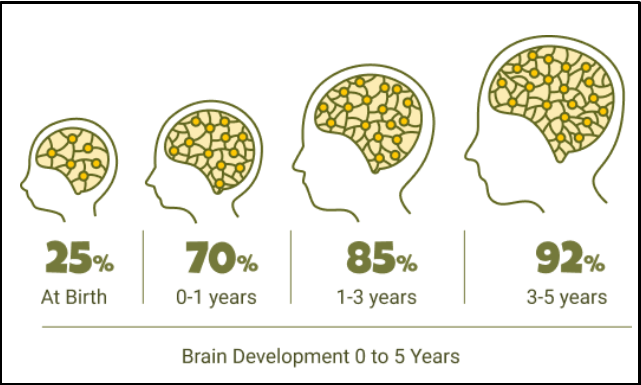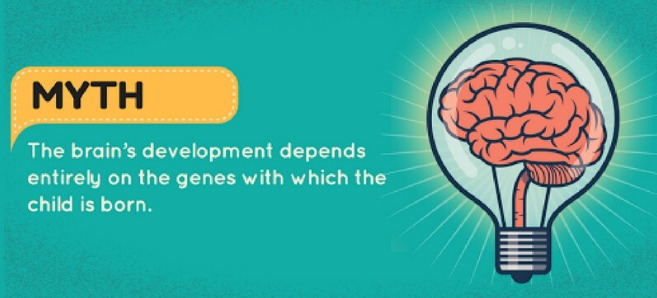March 17, 2023


The early years of a child’s life are crucial for their brain development. During this time, the brain grows and develops rapidly, laying the foundation for future learning, behaviour, and health. Understanding the importance of brain development in early childhood is crucial for parents, caregivers, and educators who want to unlock the potential of the children in their care.
The brain undergoes rapid development in the first few years of life. By age three,
The brain has already reached 80% of its adult size. This period of intense brain development sets the stage for lifelong learning, behaviour, and health. Studies have shown that children who receive high-quality early childhood education and care have better outcomes in life, including better health, increased earnings, and reduced risk of crime.
The brain is a complex organ that is responsible for a wide range of functions, including learning, memory, emotions, and decision-making. During early childhood, the brain is particularly sensitive to environmental influences, such as nutrition, stress, and stimulation. Positive experiences, such as responsive caregiving, play, and interaction with others, can promote healthy brain development.

To understand the importance of brain development in early childhood, it is important to understand how the brain develops. The brain is made up of neurons, which are specialised cells that transmit information through electrical and chemical signals. During early childhood, the brain produces an overabundance of neurons and forms connections between them.
These connections, known as synapses, are the basis of learning and memory. Synapses are formed in response to experiences, and the connections that are used frequently become stronger, while those that are not used are eliminated. This process, known as synaptic pruning, allows the brain to become more efficient and specialised.
The brain develops in a predictable sequence, with different areas responsible for different functions. For example, the prefrontal cortex, which is responsible for executive functions such as planning, decision-making, and impulse control, develops slowly and is not fully mature until early adulthood. Other areas, such as the visual cortex and the language centres, develop more rapidly in early childhood.

Teachers play a crucial role in promoting healthy brain development in early childhood. Responsive caregiving, which involves consistently meeting the child’s physical and emotional needs, can provide a secure base for the child to explore and learn. Play, especially interactive play with adults, can promote social, emotional, and cognitive development.
Nutrition is also important for healthy brain development. Adequate intake of nutrients such as omega-3 fatty acids, iron, and choline can promote brain growth and function. Breastfeeding, which provides the optimal balance of nutrients for infant brain development, is recommended for at least the first six months of life.

Early childhood education can provide a rich and stimulating environment for promoting healthy brain development. High-quality early childhood programs have been shown to have long-term benefits for children, including increased school readiness, higher academic achievement, and reduced risk of behavioural problems.
Effective early childhood programs provide a combination of cognitive and social-emotional experiences. Activities that promote problem-solving, creativity, and critical thinking can promote cognitive development. Activities that promote social-emotional development, such as cooperative play and emotional regulation, can promote
At Sanskar Dream School, we understand the importance of early childhood brain development and the role it plays in shaping a child’s future success. Our approach to education is centred on creating a stimulating, nurturing environment that supports the cognitive, social, and emotional growth of our students. We employ highly trained educators who use evidence-based practices to ensure that each child’s individual needs are met. Our curriculum is designed to provide hands-on learning experiences that foster creativity, critical thinking, and problem-solving skills. We believe that every child has unique potential and that it is our responsibility to unlock it.
Join us at Sanskar Dream School and give your child the foundation they need to thrive.

